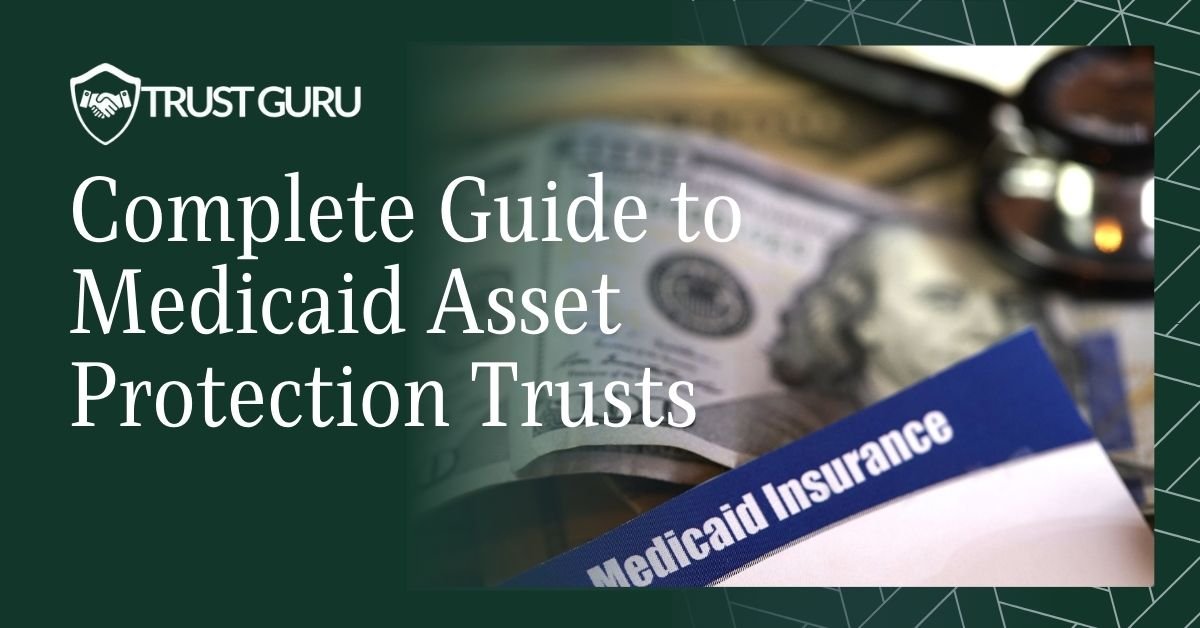Planning ahead to protect your parents’ assets from nursing home costs is essential for ensuring their financial security in later years. This article provides practical steps for navigating common challenges associated with asset protection, including Medicaid eligibility complications, complex legal regulations, and the importance of long-term care planning.
We’ll discuss each challenge in detail, offering actionable advice on how to protect parents’ assets from nursing home expenses while avoiding potential financial pitfalls.
Article Preview
- Understanding Medicaid Eligibility Complications
- Navigating Complex Legal and Financial Regulations
- Exploring Trusts and Gifting Strategies
- Managing Emotional and Family Conflicts
- Importance of Long-Term Care Planning
- Considering the Cost of Legal and Financial Help
- Balancing Asset Protection with Maintaining Control

Understanding Medicaid Eligibility Complications
Medicaid eligibility is one of the first hurdles families face when planning to protect assets from nursing home costs. Medicaid has strict asset and income requirements, and only those who meet these limits qualify for financial assistance. However, understanding these rules and managing the “spend-down” process can be overwhelming.
Learn more about Medicaid Planning and Eligibility with Trust Guru’s comprehensive guide.
Key Tips for Navigating Medicaid Eligibility:
- Asset Limits: Medicaid typically limits assets to around $2,000 for single individuals, although the exact amount varies by state.
- Spend-Down Process: This process involves reducing assets to qualify for Medicaid. Spending on allowable expenses, like medical costs, is essential, but each state has specific guidelines.
- Look-Back Period: Medicaid has a five-year “look-back” period, meaning they review any gifts or transfers made within five years of applying for benefits. If improper transfers are found, applicants may face a penalty period.
The Minnesota House of Representatives provides a comprehensive overview of how Medicaid assesses income and assets for eligibility, including details on asset limits and exclusions
Consider consulting an elder law attorney or exploring options like Medicaid Asset Protection Trusts to safeguard assets while qualifying for Medicaid benefits.

Navigating Complex Legal and Financial Regulations
When it comes to protecting your parents’ assets, understanding legal regulations like Medicaid’s five-year look-back period or asset transfer rules is crucial. Failure to follow these regulations carefully can lead to penalties, disqualification, or an extended waiting period before Medicaid benefits are available.
Strategies for Managing Legal Complexities:
- Avoid Penalty Triggers: Avoid gifting or transferring assets too close to when your parents need nursing home care.
- Consider Trusts: Irrevocable Trusts are one way to protect assets, as these assets generally aren’t considered part of your parents’ estate for Medicaid eligibility.
- Seek Professional Help: An elder law attorney or trust service company like Trust Guru can guide you through the legal landscape, ensuring your parents’ assets remain protected.
The Federal Reserve’s report discusses Medicaid’s policies on nursing home coverage and the implications of asset transfers, including the look-back period and penalties
For additional protection and compliance, Periodic Asset Protection Reviews are also helpful for keeping strategies up to date with changing regulations.

Exploring Trusts and Gifting Strategies
Many people are unfamiliar with the types of trusts and gifting strategies that can help protect assets from nursing home costs. Irrevocable trusts, for example, offer more robust asset protection than revocable trusts, as assets placed in irrevocable trusts are typically shielded from Medicaid calculations.
Common Trusts and Gifting Strategies:
- Irrevocable Trusts: Once assets are placed in an irrevocable trust, they can no longer be directly controlled by the original owner, making them safe from Medicaid.
- Gifting: While gifting can reduce assets, improper use may trigger Medicaid penalties. Small gifts within legal annual limits are generally safer.
- Family Limited Partnerships: For families with significant assets, these partnerships can separate ownership from control, offering a layer of asset protection.
The Minnesota Department of Commerce explains the fundamentals of long-term care insurance, including coverage options and consumer protections.
Learn more about options like Trust Creation and Amendments for asset security and Trust Amendment and Restatement to update trusts as needed.

Managing Emotional and Family Conflicts
Conversations about asset protection can be emotionally difficult, especially when family members have differing opinions on how to proceed. Open communication and clear decision-making can help prevent conflicts and ensure that everyone is on the same page.
Tips for Reducing Family Conflicts:
- Have Honest Conversations: Discuss the financial future and your parents’ wishes with all involved family members.
- Define Roles: Decide who will handle financial decisions to avoid disagreements later on.
- Seek a Neutral Advisor: A professional trust service provider can offer objective guidance, easing family tensions and helping everyone agree on the best course.
To ensure transparency and clarity in decision-making, Trust Guru offers Beneficiary Education Services to inform all parties about trust structures and intentions.

Importance of Long-Term Care Planning
Without a proactive approach to long-term care, families may need to make last-minute decisions that result in financial loss. Planning for future nursing home needs is essential for asset protection.
Steps for Effective Long-Term Care Planning:
- Assess Care Needs: Consider the type of care your parents may need, whether it’s in-home care, assisted living, or a nursing facility.
- Look into Long-Term Care Insurance: This can provide coverage for nursing home costs and reduce reliance on Medicaid.
- Update Estate Plans: Ensure that your parents’ estate plans, including wills and trusts, reflect their wishes and asset protection goals.
Medicare outlines the extent of its coverage for nursing home care, clarifying what services are covered and the limitations involved
For families interested in specialized solutions, Trust Guru’s Special Needs Trust Services and Charitable Trusts can provide unique benefits tailored to specific family needs.

Considering the Cost of Legal and Financial Help
Hiring professionals, such as elder law attorneys and financial planners, is often necessary for effective asset protection, but it can also be costly. These services can be crucial in navigating legal complexities and providing peace of mind. Learn Key Steps in Estate Planning and Trust Management for Families
How to Budget for Professional Guidance:
- Consult Multiple Experts: Obtain several quotes to find a reliable and affordable elder law attorney or trust company.
- Ask About Flat Fees: Some professionals offer flat fees for specific services, which can help manage costs.
- Consider Specialized Trust Services: Trust service companies like Trust Guru offer faster, more specialized support, helping families keep trusts and assets secure.
For ongoing asset security, Trust Asset Protection and Real Estate Protection in Trusts can be valuable resources.

Balancing Asset Protection with Maintaining Control
Many parents hesitate to transfer assets because they fear losing control, which can complicate asset protection strategies. Balancing asset protection with maintaining a sense of ownership can help alleviate these concerns.
Solutions for Maintaining Control Over Assets:
- Retain Some Assets: Set up trusts that protect assets while retaining some control, such as the income generated from the trust.
- Use a Trusted Power of Attorney: Assign a reliable family member or professional as a power of attorney to help manage finances without forfeiting control.
- Establish Living Trusts: These trusts allow parents to control assets during their lifetime while preparing for potential asset protection needs later.
Trustee Transition Planning can also help ensure that control is gradually and comfortably transferred as circumstances require.
Final Thoughts: Plan Early to Protect Your Parents’ Assets from Nursing Home Costs
Planning ahead to protect your parents’ assets from nursing home costs is an invaluable step in securing their financial future and ensuring they receive the care they need. Each strategy discussed here—from understanding Medicaid eligibility to establishing trusts and managing family dynamics—will help guide you through a process that can feel overwhelming at times.
At Trust Guru, we specialize in trust services to keep your parents’ wealth secure, and our knowledgeable advisors are here to help. Contact us today for personalized assistance on how to protect your parents’ assets from nursing home costs and build a plan that supports your family’s unique needs.











